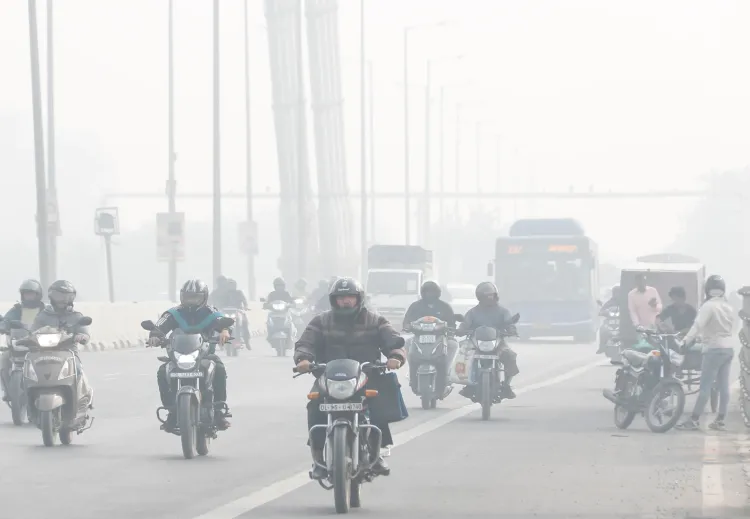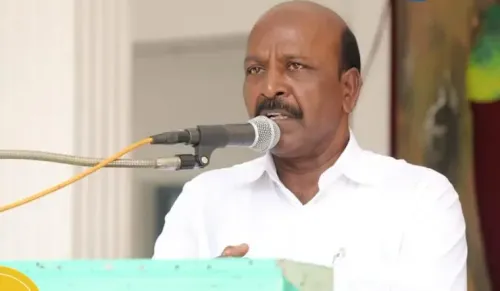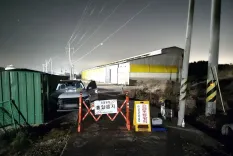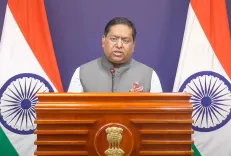Delhi's AQI Hits 274, Air Quality Remains in 'Poor' Category

New Delhi, Dec 3 (NationPress) The national capital continues to grapple with hazardous air, with the average Air Quality Index (AQI) in Delhi noted as 'poor' on Tuesday.
As per the Central Pollution Control Board (CPCB), the average AQI for Delhi-NCR reached 274 points by 7:30 a.m.
In eight regions of the city, the AQI levels soared between 300 and over 400 -- with readings of 305 in Bawana, 307 in Jahangirpuri, 325 in Mundka, 304 in Nehru Nagar, 303 in RK Puram, 302 in Rohini, 342 in Shadipur, and 306 in Siri Fort.
Meanwhile, in other areas of Delhi, AQI levels ranged from 200 to above 300 -- including Alipur (272), Anand Vihar (293), Ashok Vihar (285), Chandni Chowk (249), Mathura Road (235), Dr Karni Singh Shooting Range (293), DTU (265), Dwarka Sector 8 (299), IGI Airport (257), Dilshad Garden (262), ITO (235), Jawaharlal Nehru Stadium (250), Lodhi Road (232), Major Dhyanchand Stadium (271), Mandir Marg (262), Najafgarh (237), Narela (260), North Campus DU (261), NSIT Dwarka (252), Okhla Phase 2 (278), Patparganj (271), Punjabi Bagh (252), Pusa (248), Sonia Vihar (289), and Sri Aurobindo Marg (238).
In the Delhi NCR area, Faridabad recorded 255 points, Gurugram at 222, Ghaziabad at 181, Greater Noida at 195, and Noida at 162.
The CPCB states that an AQI between 0 and 50 is deemed 'good', 51-100 is 'satisfactory', 101-200 is 'moderate', 201-300 is 'poor', 301-400 is 'very poor', 401-450 is 'severe', and anything above 450 is classified as 'severe plus'.
In light of this troubling scenario, the Supreme Court has mandated the implementation of all measures under Stage 4 of the Graded Response Action Plan (GRAP-4), with the exception of school closures.
GRAP-4 enforces stringent guidelines on construction activities, industrial emissions, and other pollution-heavy practices. The court has voiced concerns regarding the inadequacies in applying these measures and cautioned that officials negligent in their duties may face legal repercussions.
Authorities have enacted several restrictions under GRAP-4, including a prohibition on the entry of non-essential trucks into Delhi, apart from those transporting crucial goods or utilizing cleaner fuel sources like LNG, CNG, BS-VI diesel, or electricity.
Additionally, construction work for public infrastructure initiatives has been halted to reduce dust pollution, a significant factor contributing to the ongoing crisis.










